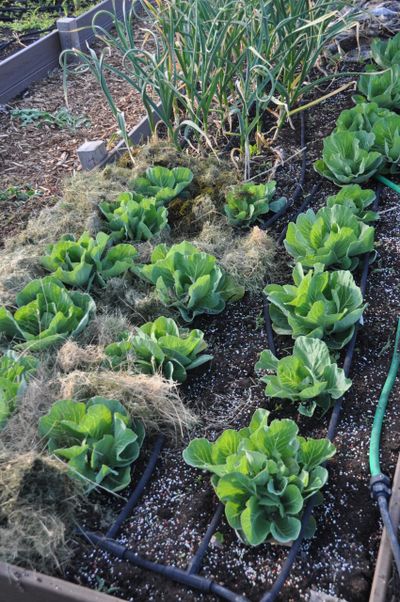Gardening: Early spring chores need attention

With spring in full swing let’s talk about some things that will need attention shortly.
We are over an inch below our average rainfall for this time of the year and will need to turn on sprinklers earlier than usual. Check your systems for broken and clogged heads and lines. The sprinkler repair folks are already busy so get on their schedules now.
If you are in areas that could experience wildfires, clean up around your house and property now.
A lot of leaves didn’t fall off the trees last October and weren’t raked up. Get them and the pine needles picked up now. Both can be raked into the lawn and then ground up with a mower and added to the compost pile. As dry as it is, I wouldn’t be surprised if we have an early fire season.
Historically we get a last cold snap with freezing temperatures around Mother’s Day so hold off planting frost-sensitive plants until after then. Cold-tolerant vegetables like onion, cabbage, kale, carrots, lettuce, broccoli, cauliflower, peas and potatoes can be planted now. Most everything else should wait until the last half of May.
If you are growing your own vegetable starts, be sure to acclimate them to the outdoors before you plant them. Set them out during the day and bring them back in at night for a week prior to planting.
Melons, cucumbers, summer squash, zucchini and winter squash can be slow to germinate in our cool June soils. To get a jump on germination, seed these crops into peat or coir fiber biodegradable pots now and they will get their first full leaves in about six weeks. You need to plant them in biodegradable pots because they don’t like their roots disturbed during planting.
The pot and plant go straight into the ground. Be sure to bury the rim of the pot below the soil surface because if left above ground, it acts like a wick and pulls moisture out of the soil.
Some of my favorite varieties to do this with are Blacktail Mountain watermelon, Waltham butternut squash, lemon cucumber and Eight Ball zucchini. Blacktail Mountain watermelon was developed in North Idaho and tolerates cool night temperatures better than most melons.
Forsythia is blooming now, and soon the lilacs will start. Both can grow to be large shrubs. Forsythia can be thinned out after it blooms by cutting down half of the largest stems to the ground. This will allow new wood that bears flowers to grow.
Lilacs will need their flowers removed shortly after they finish blooming. Look for the two emerging leaf buds and cut just above them. The new buds will set a flower bud for next spring.
The warm weather last weekend was wonderful. By the sounds of the lawnmowers, saws and blowers, my neighbors were busy with one spring job or another. I was able to get my sprinklers repaired and some perennials planted.
———
Pat Munts can be reached at pat@inlandnwgardening.com